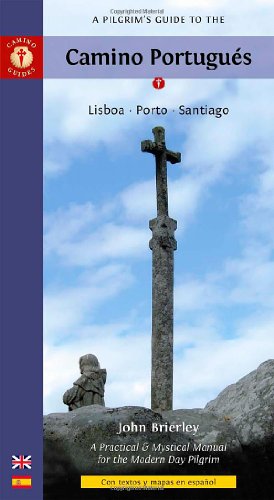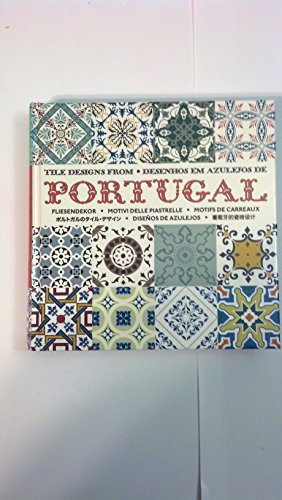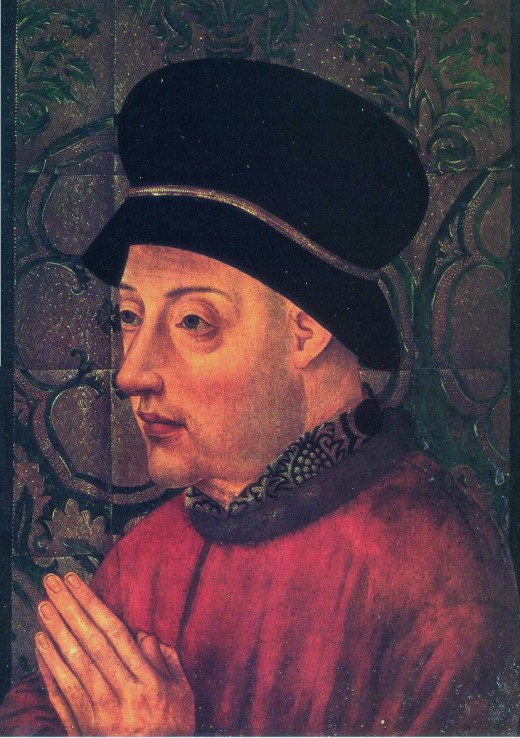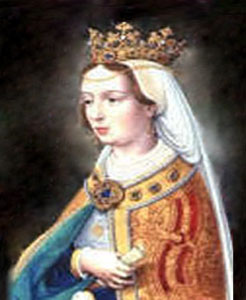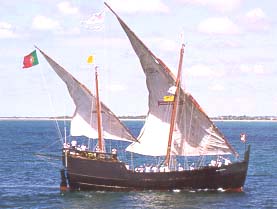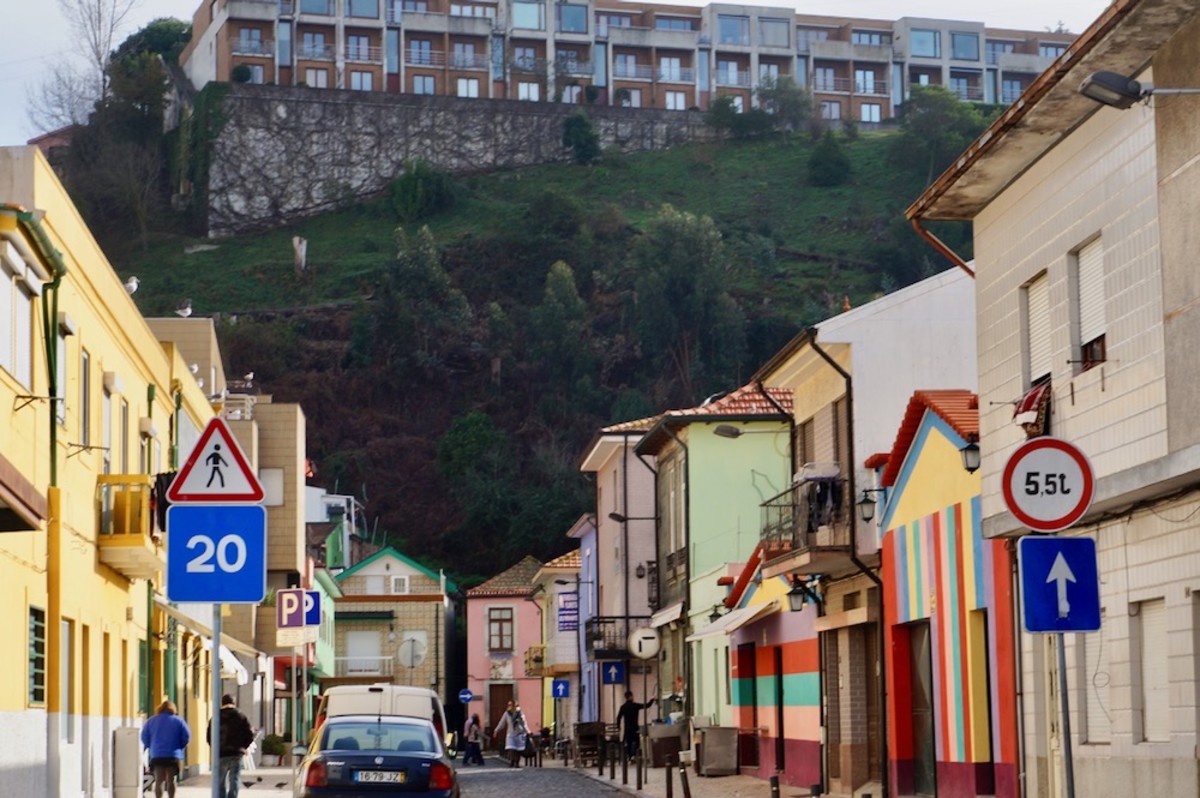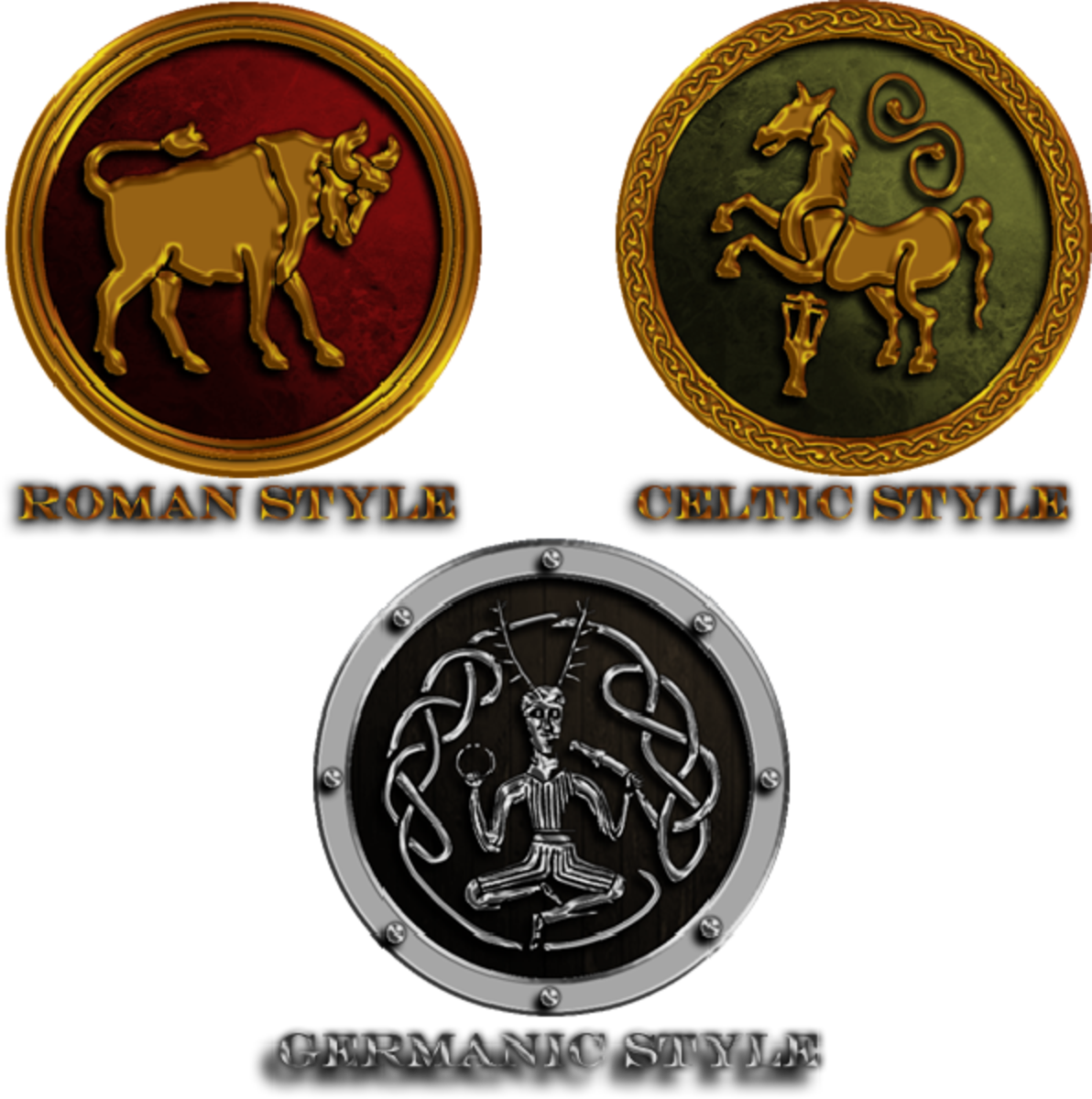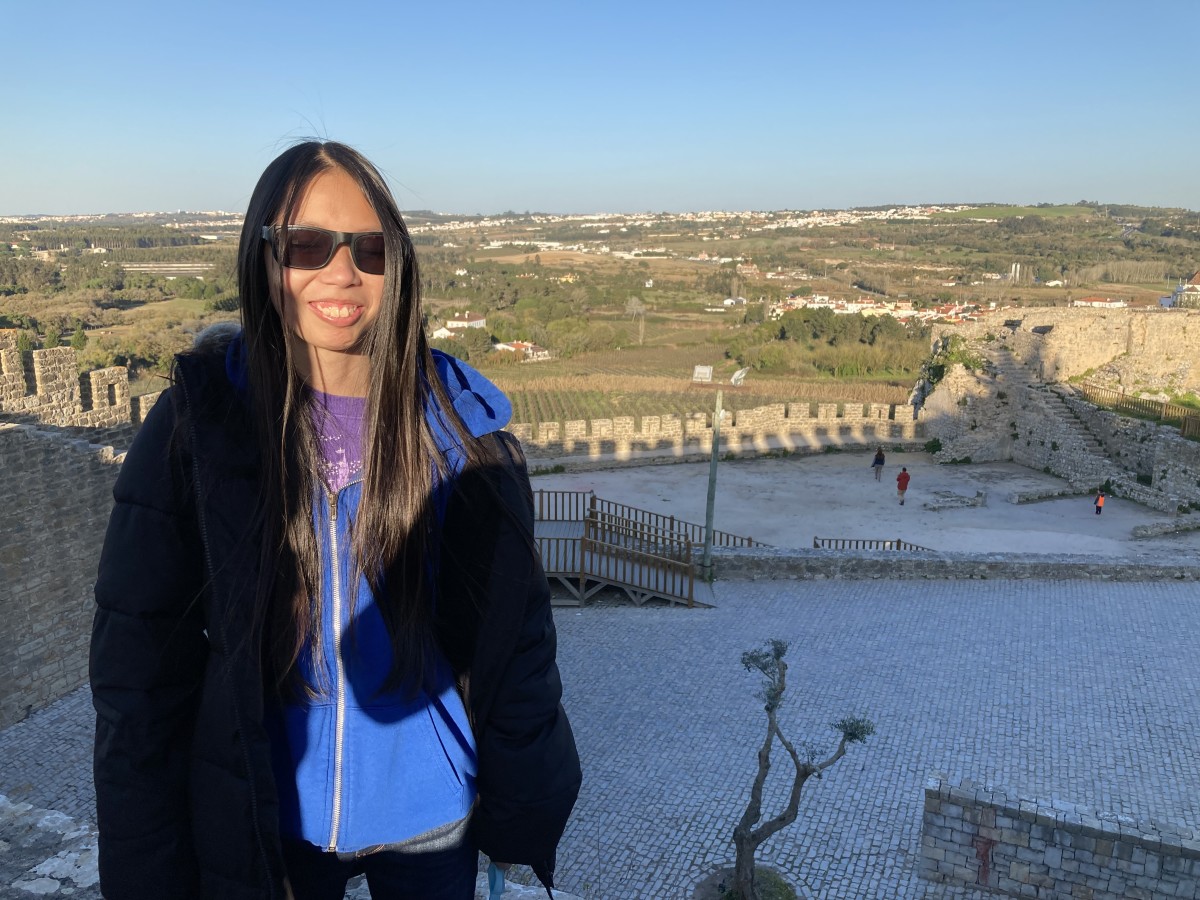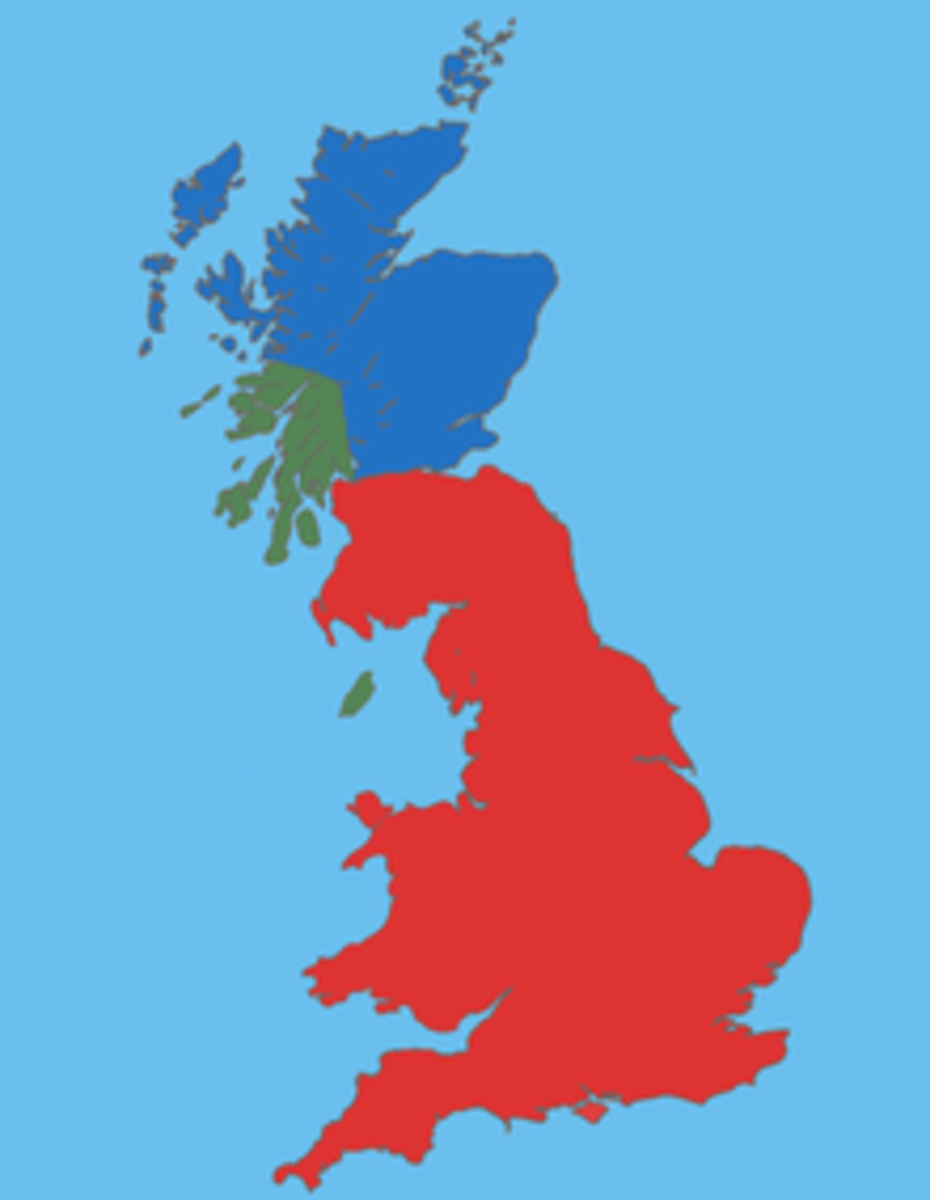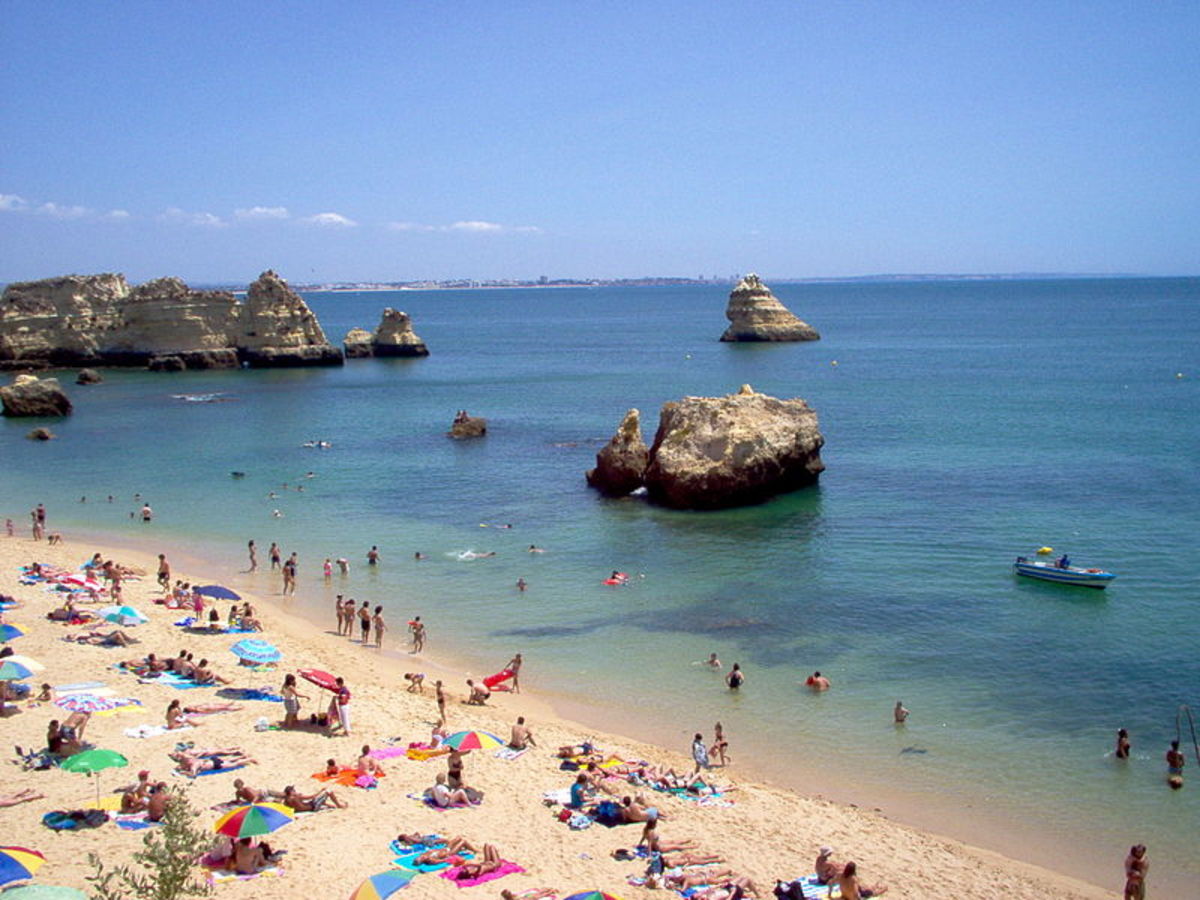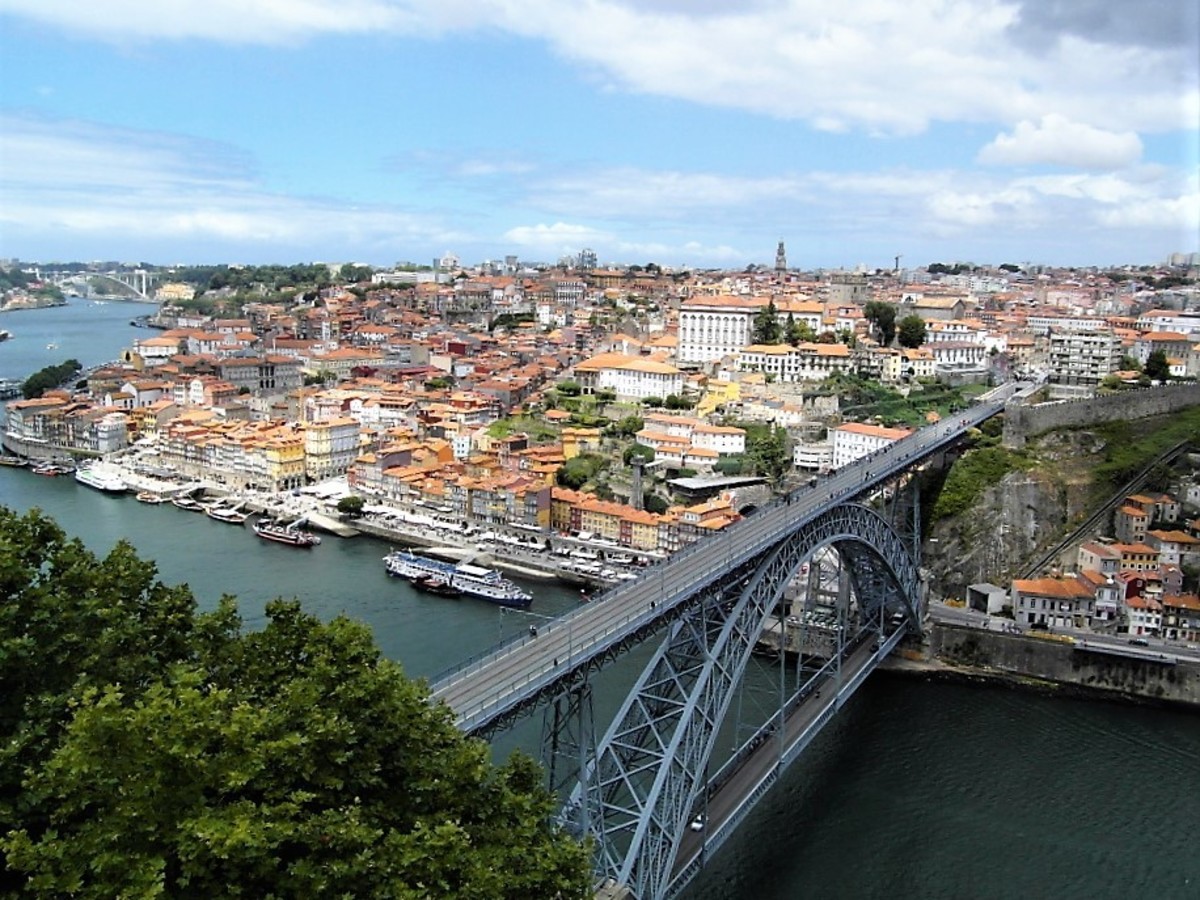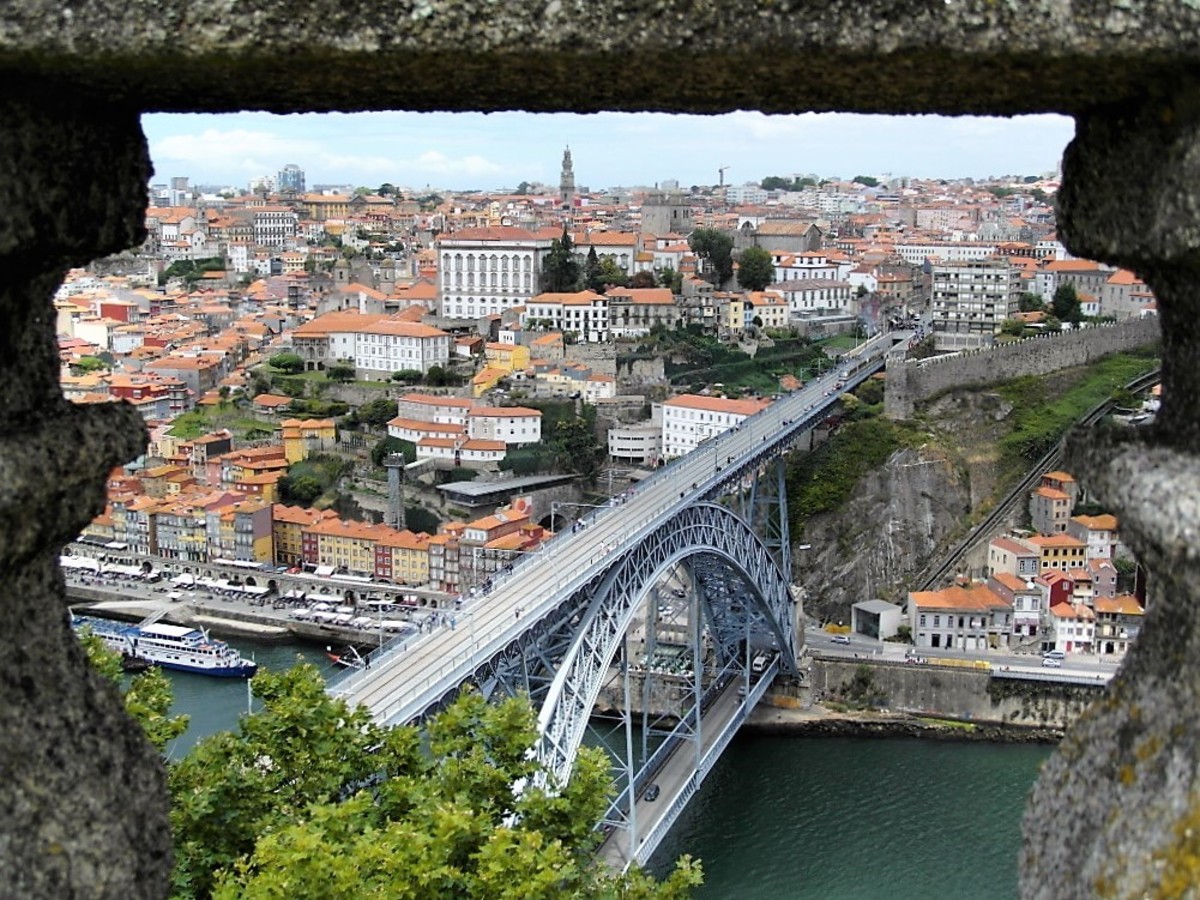Portugal In History
When it comes to Portugal, history becomes romantic, intriguing and inspiring. Lying on the Iberian Peninsula, in Western Europe, Portugal has given much to the world - more than many would realise.
She has shared some of the finest of discoveries, given birth to several of the worlds most intrepid explorers, and demonstrated a nationwide ability to mourn together, fight together and most importantly - stand together.
Much of the rest of the world view Portugal through confused eyes. Is it an under-developed country? Is it a poor nation? Is it part of Spain? Isn't Portugal an island somewhere in the Atlantic? And the most common question ... where is it?!
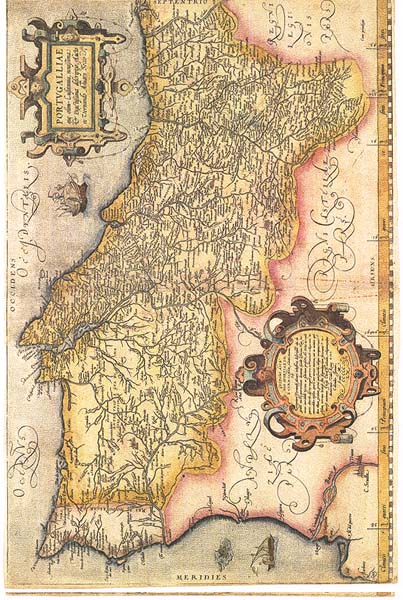
For reasons beyond normal understanding, this proud and fiercely patriotic country is often misunderstood and overlooked. That seems to have been a factor on many occasion.
Usurpers and neighboring nations have attempted to take control of Portugal, since the Middle Ages.
And yet - no matter who the conquerers were, how many times this beautiful country was wrested away from it's people, Portugal always found its way back into the hands of those who loved it best - the Portuguese.
Portugal History
Portugal History Timeline

Where To See Celtic Portugal
Due to the lengthy occupation of the Celts, there are still sites and remains strewn around the country, many worth viewing:
- Northern Portugal has some fine examples of Celtic dwellers, particularly the type of homes they built. The province in and around the Minho area bears some remnants of Portugal's Celtic past - with some extremely well preserved ruins and building that have been restored to their original form
Portugal history goes right back to the origins of man - when mists prevailed over most of the world, to a time when early man fought to exist among a world that gave no comfort - or quarter - other than what he scratched out for himself.
A time where dangerous beasts roamed the wilderness and the battle for predator and prey could be reversed in the blink of an aye. That was pre-history and we know little about who, what or how Portugal really was. Early man left little clues and language was still in its infancy.
To really look at the history of this beautiful country, we have to fast forward to the time of the Celtic tribes. They were the first dwellers to really leave any signs of their occupation of the country, though even those are, at best, scant.
What we do know is that there were around 18 to 20 smaller sub-tribes that existed among larger factions:
· Conii in the south
· Lusitanians in the centre
· Gallaeci in the north
· Celtici in Alentejo
They arrived sometime in the first MillenniumBC, conquering tribes that were indigenous. There was also a contingent of Phoenicians in the far south that came and went with the tide and trade. They were mostly known to have existed in and around Tavira, and their lives were based around market trading.
Such as life was back then, Portugal history was in the hands of the Celts, the various factions, their comings, goings and way of life. There is evidence of their existence, some of which as been restored and is worth viewing, should you ever visit Portugal.
Largely traders and warriors, the Celtic occupation of Portugal was much as it was elsewhere around the continent - and only changed when the might of the Roman Empire made it's way into Iberia.
Roman Ruins of Conimbriga
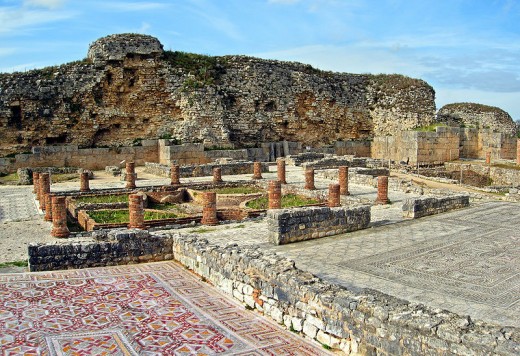
Roman Portugal Today
There are many places around Portugal that provide evidence of Roman occupation:
- Conimbriga - about 10 miles from Coimbra, is home to some of the finest Roman ruins and sites of archeological interest in the whole of Europe.
- Evora - home to the stunning Temple of Diana, which consists of 14 columns
- Bera - this region has Roman ruins dotted around the region. Pisões is home to mosaic floor, hypercaust systems and baths. There are the remains of a bridge in Chaves and in Bera itself, several buildings can still be viewed, albeit in a ruined state.
Roman Portugal 200AD
Roman Portugal began in or around 219BC. 150 to 200 years after the initial arrival of the Romans, the entire country, as it was then, had been absorbed into the Roman Empire. The way the Empire altered Portugal history was significant, in that the Romans more than left their mark, by way of innovative engineering, their language and utter need to dominate and control.
After settling proper, the Romans began creating larger settlements, many of which became the backbone of the country - Braga was created by the Romans, then known as Bracara. They defined the ruling state, the capital, know then as Olisipo, now known by its modern day name of Lisbon.
The Romans did more than usurp the Celtic factions - the country underwent a nationwide introduction to many of the positive aspects of Roman rule:
- roads
- bridges
- well contructed buildings
- a clear law infrastructure
- large scale agriculture
Thus, the Romans enjoyed much of what the country had to offer. That is ... until the Germanic tribal groups arrived to wrest control from the Romans.
The Romans, weakened by the decline of their Empire and lacking support from Rome, withdrew, dispersed or simply died during the new battle for control. Portugal history was about to change once again.
Germanic Portugal Today
Portugal still has vestiges of Germanic rule in a few areas around the country:
- Lamego - São Pedro de Balsemão Chapel
- Nazare - São Gião Church
- Braga - São Frutuoso Chapel
Some of the ruins have been restored, both for the sake of preserving an important aspect of Portugal's history, as well as a means of sharing physical evidence of who, what, where and when. History will always hold a certain appeal and it's a wise country that preserves it's heritage and protects it for future generations.
Germanic Portugal 500AD
Germanic Portugal came about in part due to the decline of the Roman Empires, as much as it was because of the strength of the invaders. Roman society wasn't entirely wiped out; the new rulers enjoyed many of the Roman's ways, viewing them largely as cultured and civilised.
Certain practices remained or were adopted and somehow, older, more established customs, traditions and standards became emeshed within the Germanic way of life. In some ways, Germanic tribes were nearer to the Celtic factions, in terms of society and culture, than they were the Romans.
Of the three main groups that arrived in the 5th century, only one survived the arrival of another Germanic influx of marauding conquerers - the Suevi. The newcomers were the Visigoths, a fearsome group who eventually took control of the whole of the peninsula.
They held onto their control until the arrival of the Moors, in the early 7th century. The Moors were not a force one could negotiate with. The Germanic grip on Portugal was removed, the Visigoths vanquished in their entirety. Portugal history takes yet another turn.
Reconquista Timeline
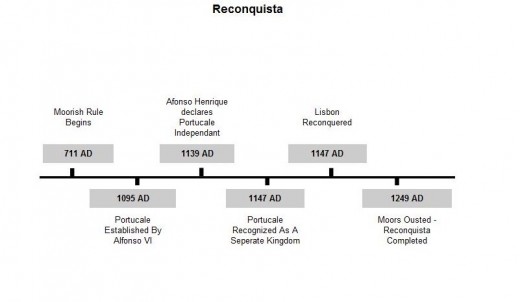
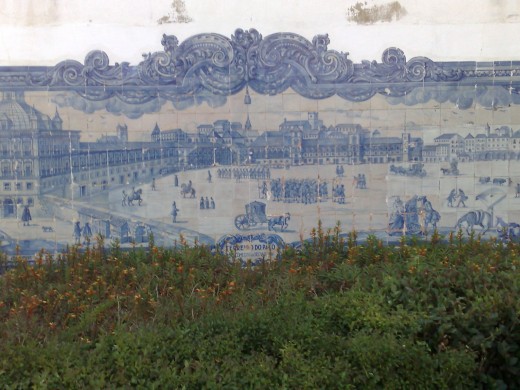
Portugal Brief History
To create a Portugal brief history timeline, we shall skip forwards to what's known as the Reconquista - the time during which Portugal wrestled for power, when it's people looked to the leaders to retake the country from the Muslims (Moors), define itself as a separate entity from Spain - and establish itself as a force to be reckoned with.
When the Moors arrived in the 7th century, they'd managed to completely usurp the Visigoths, most of whom fled to Spain. There, they waited in the shadows, determined to reclaim what they thought of as theirs. This was when Portugal history became easier to read, remember and pass on.
Prior to Portugal becoming the country as it's known today, it previously consisted of counties. This division of the country was a natural consequence of so many rulling factions, differing ideals, beliefs and religious slants. The counties themselves were settled and/or ruled by different relgious groups. The South was predominantly Muslim, the North, particularly Coimbra, had remained a Christian county.
Over a period of some 500 years, Christianity fought Moorish rule. Slowly but surely, the country began to regain its footing as a Christian nation, the Moors being steadily pushed further and further back - or expelled altogether.
The Portugal history timeline shows that by 868 AD, Oporto was back in Christian hands, followed almost two hundred years later by Coimbra, in 1064. Kingdoms were then created, and recognized as such, one of which was known as Portucale - the name from which Portugal orginated.
This was in 1095, when Alfonso VI of Castile and León was the then ruler of the kingdom. Following his rule came Afonso Henrique who, in 1139 declared that Portucale was a kingdom in its own right, with himself as King.
Several years later, King Alfonso VII of León-Castile granted Portucale its independance, which was further sealed by the recognition of Pope Alexander III in 1179. With the help of external crusaders and allies, the Moors were finally ousted from Portugal's borders in 1249.
This was when Portugal finally gained its full independance for the first time. The Reconquista was complete and Portugal became the first country on the European continent to establish borders that remain unchanged to this date.



Portugal
- Ins De Castro - Crowned Queen After Death
Ins de Castro was Spanish nobility, born around 1320 AD. A fascinating glimpse at Portuguese monarchy in the 14th century.
Portugal And The Age Of Discovery
Once the Reconquista had reached its natural conclusion, Portugal history came into its golden age. Post 1249 AD, Portugal still struggled through turbulent times. Spain, its ally and supporter, expended considerable effort trying gain control of Portugal, culminating in the great Battle of Aljubarrota in 1385.
Spain, finally refuted and firmly reminded that Portugal would no longer sit idly by whilst conquering nations fought over her like mangy dogs to a bone, turned its attention to its own, more pressing affairs.
Portugal was finally allowed to come into its own. At the time, King João I was the ruling monarch and shortly after he showed Spain the door, he married an English woman of high birth, Philippa of Lancaster.
The marriage sealed the oldest alliance in existence between two countries - Portugal and England. The Anglo-Portuguese Alliance was signed in 1386 and still exists to date. The Alliance brought about a long line of heirs to the throne, all princes that went on to support what was to become known as the Age Of Discoveries.
Portugal history then entered a period of great prosperity. Trading posts were established, seafaring routes were plotted or new ones discovered. Silver and gold and both rare and common spices were traded, as far away as the Asian continent, the Americas and the African sub-continent.
Portugal created various colonies, dotted around the West African coastline, as well as discovered the Azores and Brazil, parts of India and beyond. They began slave trading and despite America often being thought of as the forerunner of human trafficing - Portugal was far more heavily involved in the initial stages.
The golden age is far too extensive to detail here as there were a myriad of important discoveries, famous seafaring explorers, immortalized in modern day Portugal by way of incredible mordern architecture and fantastic wealth that boosted both the nation's economy and its strength as a global player in the developing world.
For those wishing to delve further into Portugal history that relates to the Age of Discoveries, there are several books in print, some featured in and among this article, as well as some very reputable online resources.
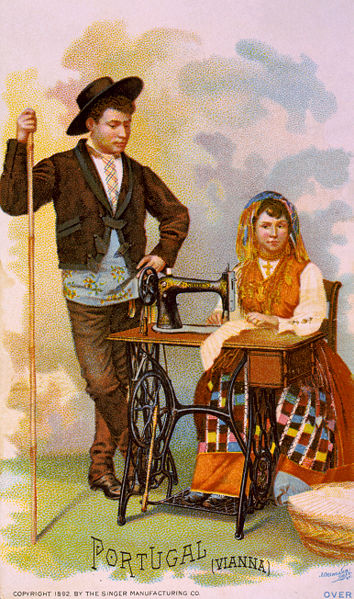
Portugal Interesting Facts
A list of interesting facts about Portugal:
- Officially the country is called the Republic of Portugal
- Coimbra University is possibly the oldest or one of the oldest in Europe - 1290
- The national flower is lavendar
- Portugal is a developed country - 2005 showed it as being 19th (for quality of life) which put it well in front to France, UK and Germany
- India was discovered by a Portuguese mariner - Vasco da Gama
- The Ponte de 25 Abril (April 25 birdge) in Lisbon is the fourth largest suspension bridge in the world
- Poruguese population: roughly ten million people
- The first man to sail around the world (in 1522) was Portuguese - Fernão de Magalhães.
- Bartholomew Diaz - a Portuguese mariner, was the first man to sail across the tip of Africa and subsequently named it the Cape of Good Hope
- Portuguese is the official language of nine countries
- Portugal is a founding member of NATO
- The country became an EU member state in 1986
- The climate is mediterranean
Portugal History - 1755 On
- Lisbon Earthquake 1755
The Lisbon Earthquake of 1755 inflicted untold damage upon the city and left thousands injured and dying. The disaster destroyed the once beautiful city, leaving it a shadow of its former glory. - Aristides de Sousa Mendes
Aristides de Sousa Mendes was a religious man; posthumously proclaimed Righteous Among The Nations, hailed a hero and gave his all to his fellow man. - The Carnation Revolution Portugal 1974
The Carnation Revolution hit Portugal on the 25th April 1974. It was one of the most peaceful political revolutions in history.
Portugal Culture
Portugal culture was shaped over the years by the slow grind, the influx, the ebb and flow of conquering nations and tribal factions - all of which left its combined mark upon the Portuguese. Much of the modern day language remains firmly rooted in Latin (Romans), though there are some very obvious Arabic (Moors) influences.
The Germanic occupation left it's stamp, language wise, though to a much lesser extent. Architecturally, the Moorish rule is still in evidence today, particularly in and around the capital city, Lisbon.
A great deal of Portugal history can be found in and among the city itself and none more obvious than around the Alfarma district, an old quarter in downtown Lisbon. I remember walking around Alfama more times than I care to remember and always thought that if I ever came to buy a home in Lisbon, it would be either in Alfama or the neighboring Graça.
The name originates from the Arabic Al-hamma, which means bath or baths. Alfama is also one of very few areas (in the city) unaffected by the devastating earthquake that destroyed Lisbon, and Portugal, in 1755. The link to the right takes you to a full, historical and factually correct account of the events and devastation that reduced Portugal from being one of the richest nations in the world to one of the poorest.
It took many years for Portugal to recover from the after effects of the earthquake, such was its magnitude. Even now, there is still a tangible belief that the country never really recovered. Had Portugal history continued without the earthquake, had the country continued to flourish exponentially, this account of Portugal history would be a vastly different one.
However, I doubt that it would affect the culture and traditions of Portugal, the fierce yet passionate pride that the Portuguese hold for their nation. Fado would still exist, the beautiful, haunting music, exclusive to Portugal, that tells of women weeping at the shores as their husbands vetured to sea ... longing, missing, wanting, needing.
The disposition of the Portuguese is happy and optimistic. They've adopted an almost Gallic shrug to everyday problems, preferring instead to live life well, live it to the full. Family and children are everything and despite the economy appearing to be less than that of its European neighbours, the Portuguese enjoy a great quality of life.
Portugal and its history show solidarity in the face of forced rule, the despotic years when dictatorship ruled and one man, António de Oliveira Salazar decided upon the fate of so many for so long that when the people were downbeaten, when it looked as though the spirit of Portugal was crushed beyond measure, the people rose and came together - the result being a military coup, a revolution that is known to be the only one of its kind - a peaceful one.
During Salazar's rule, there's also evidence of courage in the face of adversity, by way of a man that saved countless thousands of live: Aristides de Sousa Mendes. Prior to the second world war, he was a diplomat stationed in France and, when war broke out, Aristides felt compelled to issue in excess of 38,000 visas over the course of a few days and weeks - knowing full well the fate that awaited him back in Lisbon.
This one man showed the heart of Portugal. He evidenced the courage, tenacity and spirit that seems to hold the nation together, more so when times are hard and the going gets tough. In many ways, much of this tenacity can still be seen in rural Portugal. Many things are still done the old fashioned way.
Old traditions and superstitions remain ever present. People still believe in a hard days work, living off the land, sharing what they have and to be anything other than stoic is anathema to many. To a foreigner living among them, this can be a difficult aspect of the Portuguese to embrace.
There is nothing more maddening than patiently waiting in a queue that only you are in, watching those that should be attending to your needs happily chat with colleagues, water plants, talk to friends on their phones - and every now and then they look over a smile (genuinely) and say something like 'someone will help you shortly'.
Portugal history shows how events and unheaval have shaped the country, molded its people and has defined how the country now grows and develops in keep with the modern world and global economy. Portugal has many things to offer, has already brought much to the table and will continue to do so as the future creeps ever on.
Have you ever visited Portugal? Thinking to - intend to in the future? Leave your answer in the comments section. Maybe one day I can organize a guided tour around my adopted home - and then we can all get wonderfully merry on some of Portugal's famous vinho verde and enjoy an aspect of Portugal that certainly gives it an edge ... the hospitality!

